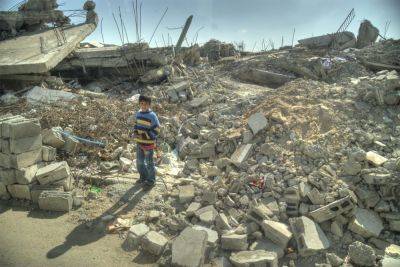Israel's ban on Palestinian workers is causing supply shocks to its economy: Central bank governor
The immediate ban on nearly all Palestinian workers to enter Israel following the Hamas-led terror attack of Oct. 7 has dealt a shock to the Israeli economy, the country's central bank chief said at the World Economic Forum in Davos.
"We're working in a very uncertain environment, as you can tell, and I would say there are two types of shocks: there is a supply shock," Bank of Israel governor Amir Yaron told CNBC's Dan Murphy. "And it's primarily in the construction industry where ... a third of that industry is Palestinians from the West Bank, and now they're not coming in to work."
"It's also affecting agriculture, where they are in, and there are other foreign workers," Yaron said. "So that will take a little bit, that's a negative supply shock, and it could affect prices going up towards the second half of the year."
He said that the bank must monitor these price developments, adding, "On the other hand, we've seen negative demand shock, obviously in a war. And so far that negative demand shock has been the most dominant one. And we will have to monitor that as well, as we go forward with how we are thinking about continuing with monetary policy."
Before Oct. 7, more than 150,000 Palestinian workers from the occupied West Bank entered Israel daily for work in a range of sectors, predominantly in construction and agriculture.
The ban on most of these workers returning to their employment in Israel has dramatically hurt the economy of the West Bank. It has also contributed to anger and rising unrest over Israel's decades-long occupation and its relentless bombardment of the Gaza Strip, which Palestinian health authorities say has killed more than 24,000 people. The Israeli offensive began after Hamas militants from Gaza






